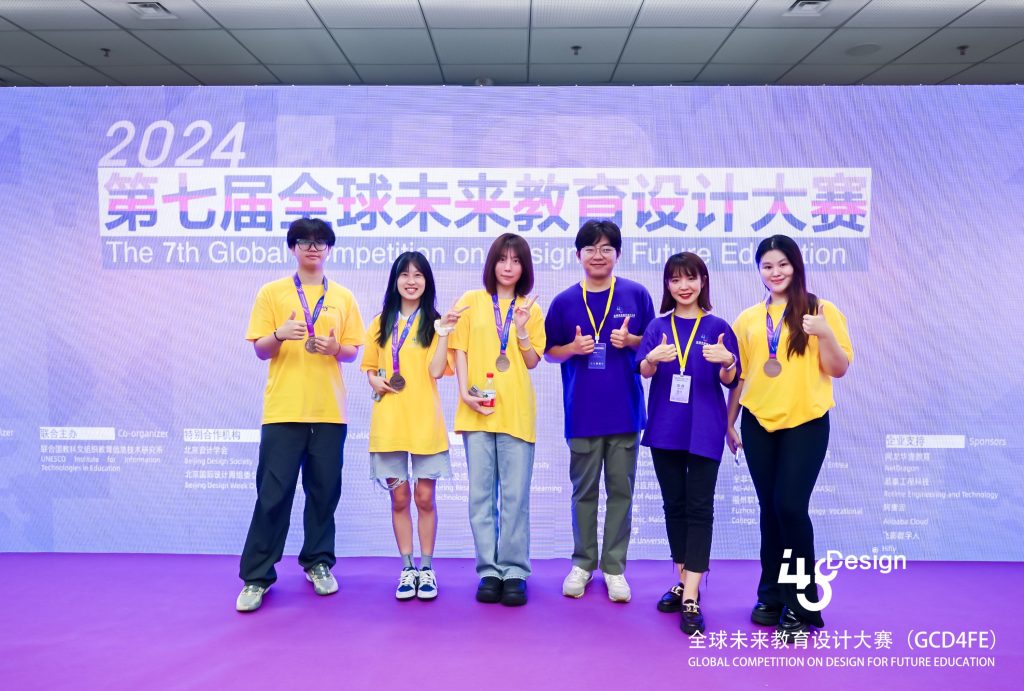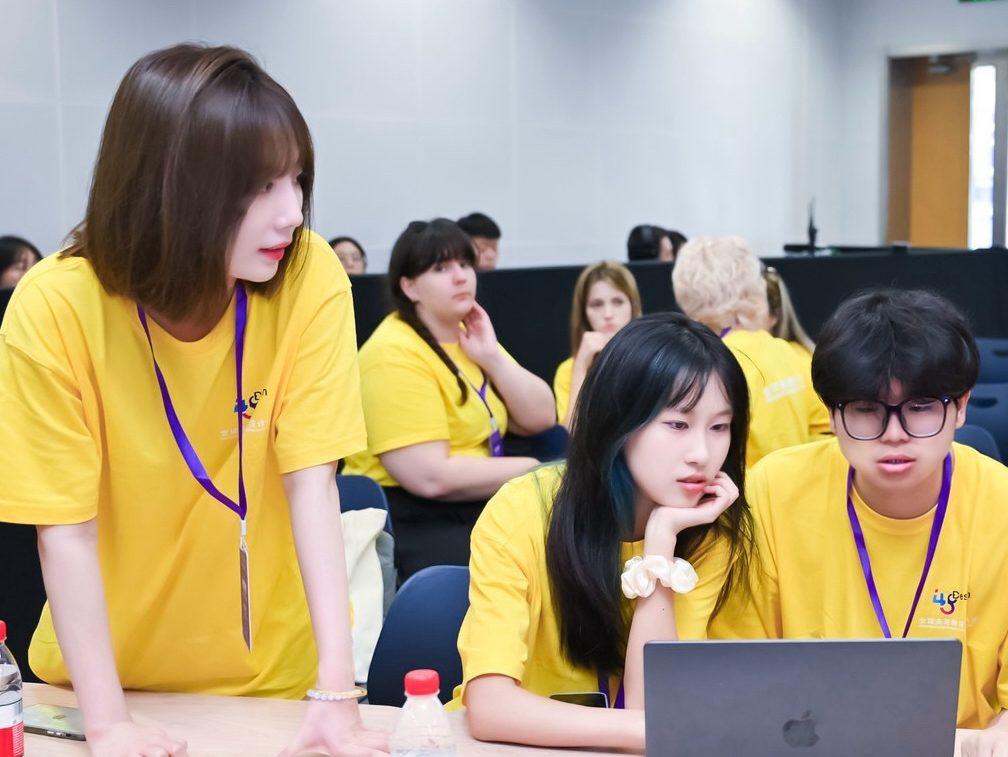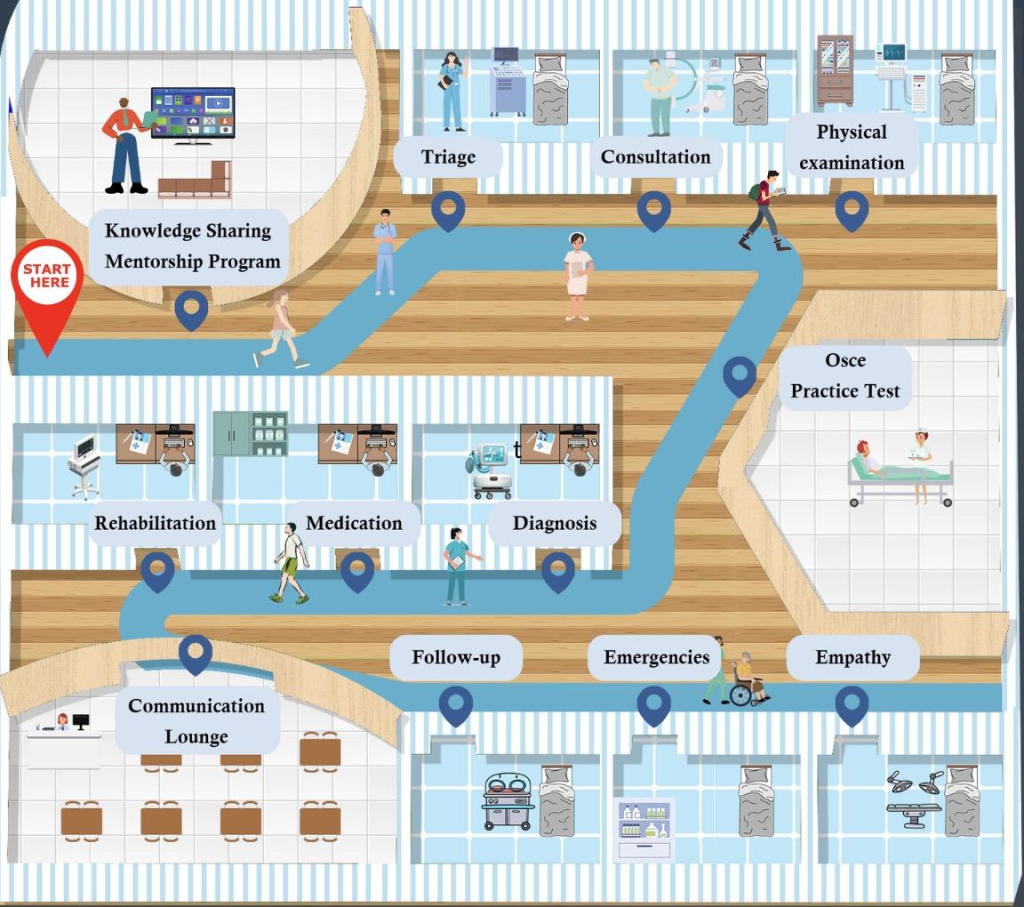03 Sep 2024
A team including master’s students from the XJTLU Academy of Future Education has received an award in a UNESCO-backed competition for designing an innovative medical training software.
Yuhan Liu and Zhe Xu from the MSc Digital Education programme developed their Hellodoc Chuyi project with students from the Chinese University of Hong Kong-Shenzhen, Nanjing University, and Hong Kong Baptist University, all based in China.

The bronze-winning team including Zhe Xu (first left) and Yuhan Liu (third from left)
Integrating theory and practice, the software uses artificial intelligence and multimodal image recognition to create simulated consultation exercises for medical students, and features an e-library stocked with quality resources from around the world.
The project received the bronze award at the Seventh Global Competition on Design for Future Education, co-organised by UNESCO and Beijing Normal University, China. The annual activity provides opportunities for cross-country and international interdisciplinary learning and communication, and aims to stimulate educational innovation.
Xu says that Hellodoc Chuyi is designed to address the fragmentation in today’s medical education as well as challenges facing new medical schools, such as academic support, opportunities for clinical practice, and the integration of learning and clinical practice.
“We hope to use AI and digital technology to gather excellent medical resources for students to share and learn, reducing the uneven distribution of resources and promoting fairness and universality in education,” he explains.

Yuhan Liu (left) and Zhe Xu (right)
Race against time
Under guidance from tutors, teams were required to conceive and present their project design to an evaluation panel within 48 hours using PowerPoint, interface design, modelling, and other visual methods.
“We had numerous discussions and brainstorming sessions before determining the direction of our final project,” Xu says. “Our team members made great efforts in aspects including project management, user interface design, animation, and algorithm integration.”
Dr Na Li, Programme Director of MSc Digital Education and the team’s tutor, provided detailed advice throughout. In the design phase, for example, she suggested introducing more complex scenarios to the software, helping make the simulated consultations more realistic.
The global competition draws talented students every year, making for an intensely competitive atmosphere.
“Our tutor was very conscious of our mental well-being, and provided guidance and encouragement at every step,” Liu says. “In this high-pressure environment, we learned how to effectively work together to ensure a successful project. This experience has helped me become clearer about my future academic plans.”
Liu says that the team will continue to develop the Hellodoc Chuyi software and hopes to launch it soon.

The Hellodoc Chuyi training software interface
By Xiaoyan Jin
Translated by Jiaming Ji
Edited by staff editor and Xinmin Han
03 Sep 2024









